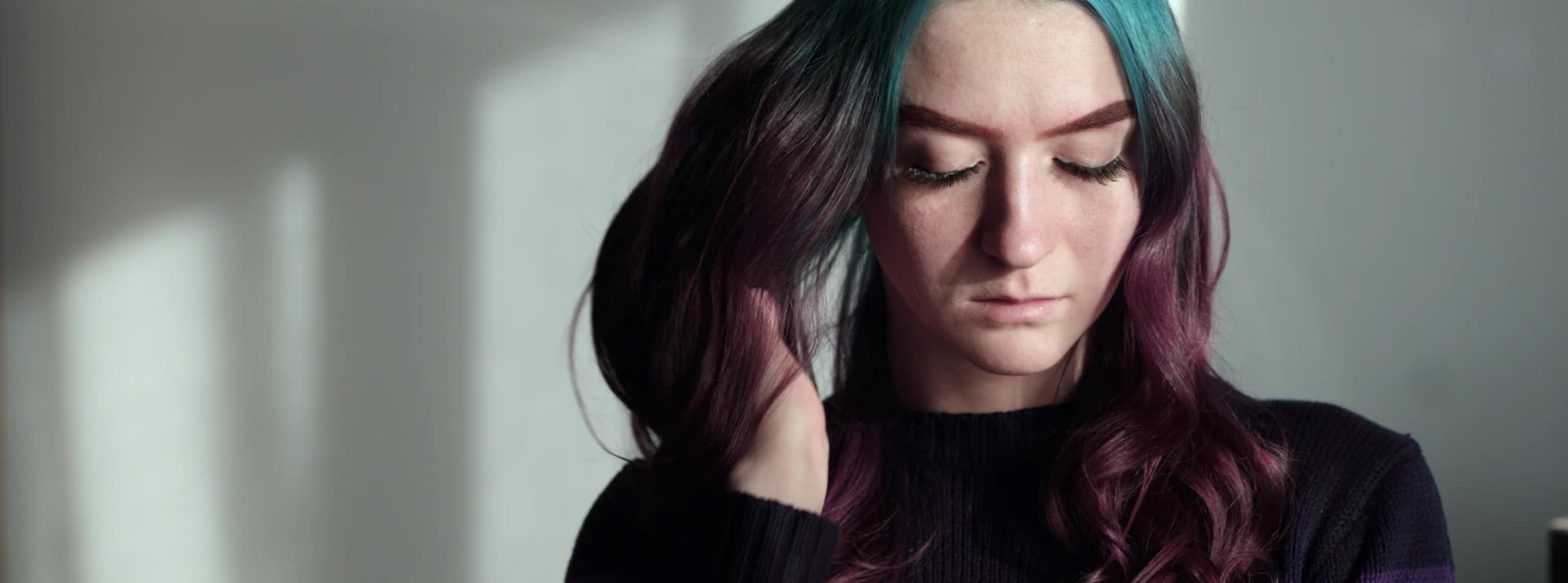Getting better
Teenage depression: What can we do about it?
Getting better
Teenage depression: What can we do about it?
Approved by doctor Frédéric Benoit, psychiatrist
Is depression really a mental illness? What’s it like? What treatments are available to overcome it? What does the medication do? Have you been asking yourself these questions and looking for answers?
Here are some frequently asked questions—and answers—to help you gain a better understanding of adolescent depression and what you can do about it.

Why is depression considered a mental illness 🧠 ?
To give you a better idea, let’s take a quick peek inside your brain, where there’s an entire network of nerve cells—your neurons. The brain uses chemicals called neurotransmitters to relay information from one neuron to another. Think of a neuron as a cell phone, with the neurotransmitter being the network that lets you send texts from one phone to another.
You aren’t aware of it, but every time you move, feel an emotion, make a decision or pass judgment on something, your neurotransmitters are sending that information to your brain.
Scientists believe that when you suffer from depression, certain neurotransmitters (serotonin, dopamine and norepinephrine) are poorly received—or not received at all—by the neurons. This lack of communication between neurons affects your mood, thoughts and behaviour and prevents you from functioning normally in your day-to-to life. That’s why depression is considered an illness.
Can depression be cured 🏥 ?
These days, 80 % to 90 % of people diagnosed with clinical depression can be effectively treated through medication in combination with psychotherapy. This is an incredibly high success rate for any mental health disorder.
Did you know?
According to the World Health Organization, globally, depression is one of the leading causes of illness and disability among teenagers.
What’s more, 50% of mental illnesses start by age 14, and 75% begin by age 24.
In Quebec, it is estimated that 5% to 10% of young people will suffer from depression during adolescence. (Portrait of adolescent well-being, see references on our website)

What happens if you don’t treat it 🛑 ?
Ask yourself: What happens if you don’t treat a physical illness? Well, it gets worse.
The same goes for depression. It’s a curable illness. But if it’s left untreated, it can have long-term consequences. It can affect your relationships, your education, your drug or alcohol use—it can even lead to suicidal thoughts.
To make sure this doesn’t happen, you must act early. Depression can be cured faster when it’s diagnosed at the first sign of symptoms, which often occur in adolescence.
5 more questions about depression
Depending on your condition, a healthcare professional may suggest various ways to cope with teenage depression. This may include:
- Changing your lifestyle;
- Undergoing therapies for teenage depression, such as psychotherapy;
- In some cases, taking medication.
Psychotherapy is a psychological therapy that takes place over several weeks. The goal is to relieve or treat the issue. It can also help you find answers to your questions, solve problems, and make choices that will help you feel better.
Sometimes, a doctor can also prescribe antidepressants to help restore the balance between neurotransmitters, and, in turn, reduce the intensity of the symptoms. Antidepressants can take three to four weeks to take full effect. That’s why it’s so important to stick with your course of treatment for its full duration. However, antidepressants won’t solve all your problems overnight. If you need to take medication to deal with adolescent depression, it’s highly recommended that you also undergo psychotherapy. If you have any questions or concerns about your therapy, be sure to talk to your doctor or pharmacist.
They ask questions that help them identify any signs and symptoms that may be present. They may ask, for instance: Are you sleeping okay?, Are you eating well?, Are you using drugs or alcohol?, Are you having any thoughts of death or suicide? They’ll also ask questions about your family history. Your answers will help them make the right diagnosis. That’s why it’s important to be honest.
Medication is prescribed in cases of depression where you can no longer function because of the intensity of your symptoms, especially if you’re having suicidal thoughts. Medication is therefore necessary to help reduce the intensity of the symptoms.
During adolescence, it can vary between six months and a year. But remember that every case is different. The duration of therapy can depend on several factors: how long you wait before seeing a doctor, how much effort you put into psychotherapy, how effective the antidepressants are, whether or not you get the right one the first time, etc. Generally speaking, when depression is diagnosed and treated during adolescence, the recovery time is shorter than if you wait until later in life.
Antidepressants have changed dramatically over the years. They ease your symptoms and stabilize your mood. The don’t turn people into zombies. And if they do, it probably means that the medication or dosage is not adapting to your body the way it should, which means you should talk to your doctor or pharmacist right away.
In certain cases, yes. But in young people, it’s quite rare, especially if you stick to your treatment plan. It’s important to understand that the longer you wait to get help, the longer the treatment will take. Often, when you’re diagnosed as an adult, you realize that the illness actually started a long time ago, often in adolescence. And that’s a lot of suffering that could have been avoided if you’d have gotten help sooner.
Need to talk about how you feel?
Speak with a Tel-Jeunes worker: it’s anonymous, free and accessible 24/7
Reference
1. KESSLER, R. C. et al., “Lifetime Prevalence and Age-of-Onset Distributions of DSM-IV Disorders in the National Comorbidity Survey Replication,” Archives of General Psychiatry, 62, 6 (June 2005) p. 593–602.
